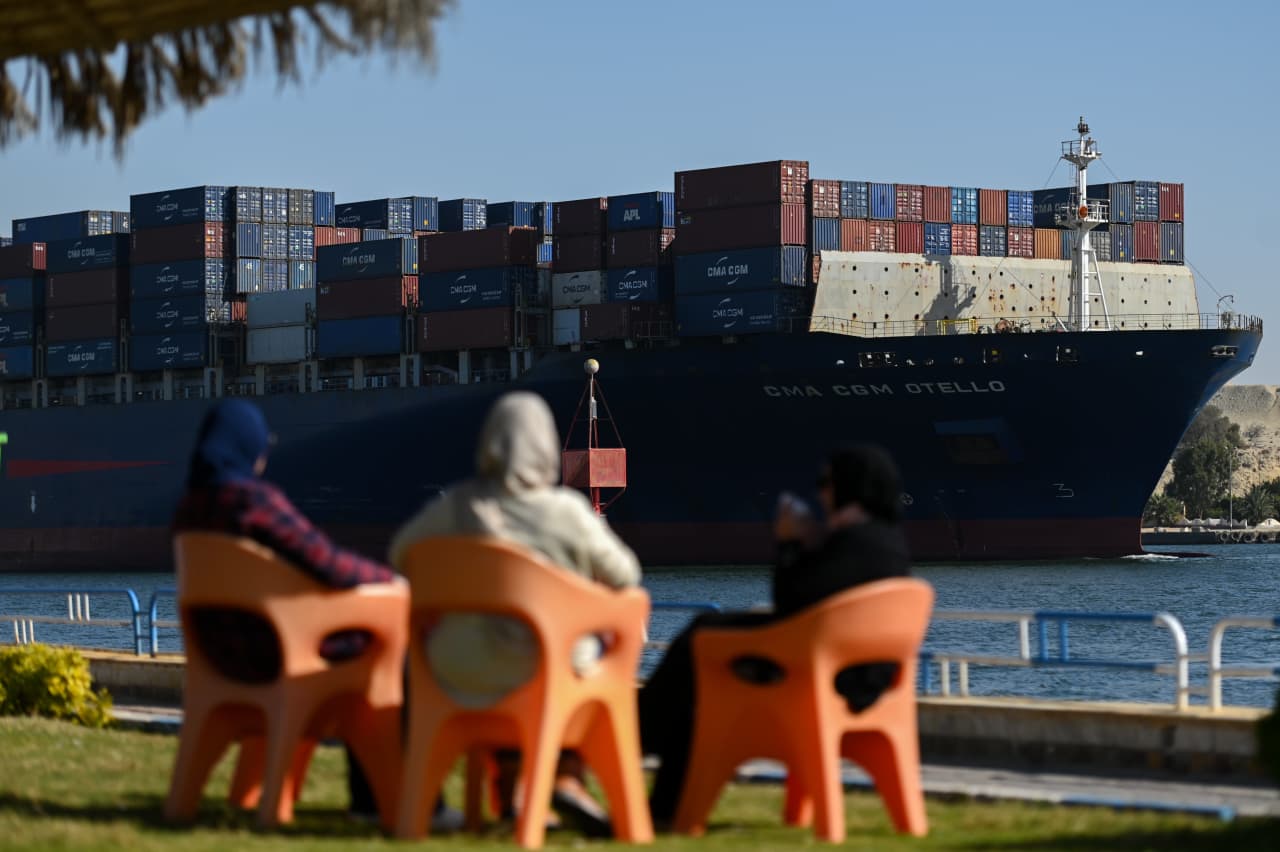[ad_1]
Exchange-traded funds that track shipping stocks were surging on Friday after U.S.-led militaries launched airstrikes on Yemen’s Houthi rebels in response to their attacks on Red Sea shipping, fueling market concerns about the Israel-Hamas war widening into a broader conflict in the Middle East that could prompt further spike in oil prices and in the cost of shipping.
Shares of SonicShares Global Shipping ETF
BOAT,
which tracks global companies engaged in the maritime transportation of goods and raw materials, was jumping 3.4% on Friday morning, while the U.S. Global Sea to Sky Cargo ETF
SEA
was advancing 2.7%, according to FactSet data.
Both funds were on pace for their biggest daily percentage gains since December 18, 2023, when Yemen’s Houthi movement attacked two commercial ships in the Red Sea, which led the U.S. to launch a naval coalition the next day to thwart attacks on commercial shipping in the region.
The Breakwave Dry Bulk Shipping ETF
BWET,
which tracks the daily price movements of the near-dated dry bulk freight futures, was gaining 7.3% on Friday. The fund has risen 17.8% this month, on track for its biggest monthly percentage advance since June 2023, according to FactSet data.
Dry bulk carriers transport unpackaged dry cargo, such as iron ore, coal and grain, a type of transport distinct from oil tankers and containerized cargo ships.
Some of the world’s largest shipping firms, oil producers and cargo carriers have paused shipments through the Red Sea since early December, diverting their vessels from the region but having to add weeks to journeys and driving up shipping costs.
Although so far the great majority of containership traffic has rerouted their ships around Africa, tankers and dry bulk continued to pass through the region. “Now traffic will be reduced for those vessels as well,” said John Kartsonas, managing partner at Breakwave Advisors.
As a result, the increasing distance could add almost two weeks to the voyage, and depending on how long the disruption lasts, it could have an impact on shipping rates, he added.
“Containership rates have now doubled in the last two months. Tanker rates have had a more muted reaction, but it might be the case that they will react going forward given the new information,” Kartsonas wrote in emailed comments on Friday.
The escalation of Houthi attacks on shipping and subsequent retaliatory military strikes by the U.S. and U.K. also supported oil prices on Friday. West Texas Intermediate crude for February delivery
CL00,
CLG24,
was jumping 1.5%, to $73.12 a barrel after rising over 4% in the morning trade. March Brent crude
BRN00,
BRNH24,
the global benchmark, was up 1.6%, to $78.58 a barrel on ICE Futures Europe after briefly crossing over the $80-a-barrel level.
U.S. stocks were lower on Friday, with the Dow Jones Industrial Average
DJIA
down over 200 points, or 0.6%, to trade at 37,48, while the S&P 500
SPX
was off 0.2% and the Nasdaq Composite
COMP
was falling 0.1%, according to FactSet data.
[ad_2]
Source link

